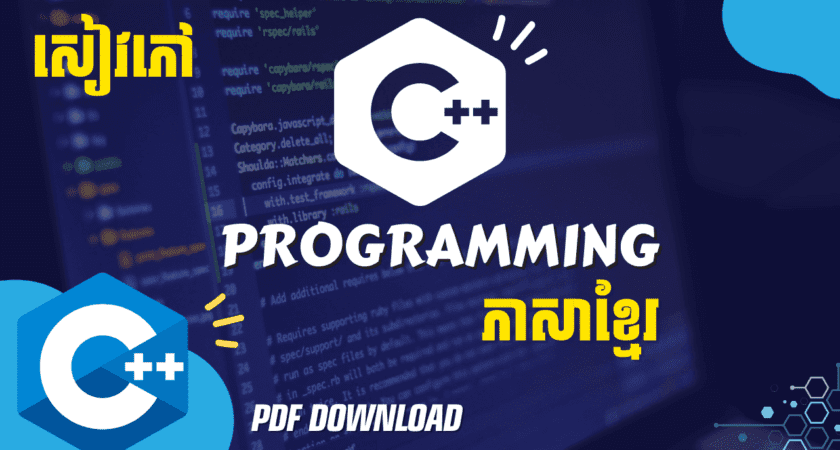Introduction
C++ is a general-purpose, object-oriented programming language. It was created by Bjarne Stroustrup at Bell Labs circa 1980. C++ is very similar to C (invented by Dennis Ritchie in the early 1970s). C++ is so compatible with C that it will probably compile over 99% of C programs without changing a line of source code. Though C++ is a lot of well-structured and safer language than C as it OOPs based.
Some computer languages are written for a specific purpose. Like, Java was initially devised to control toasters and some other electronics. C was developed for programming OS. Pascal was conceptualized to teach proper programming techniques. But C++ is a general-purpose language. It well deserves the widely acknowledged nickname “Swiss Pocket Knife of Languages. Read about our other post at condingshikho.com
Fundamentals of C++
Here are some of the fundamentals of C++:
- Variables and data types: In C++, variables are used to store data. Data types define the kinds of data (integers, floating-point numbers, and characters) that can be stored in a variable.
- Operators: Data operations including addition, subtraction, multiplication, and division are carried out using operators.
- Control flow statements: Programmers can manage how a program is executed by using control flow statements. This covers clauses like for, while, else, if.
- Functions: Code is grouped together and assigned specific duties using functions. Functions have the ability to accept input parameters and return values.
- Classes and objects: In C++, objects are defined via classes. Data and behavior are contained in objects, which are instances of classes.
Object-Oriented Programming in C++
A programming paradigm known as object-oriented programming (OOP) makes use of objects and how they interact to create computer programs and applications. Code and data are contained in objects, which are self-contained entities. The attributes of an object store data, and the methods of an object store code.
OOP is supported by the general-purpose programming language C++. Classes and objects are the usual organizational units of C++ programming. Classes are used to specify an object’s behavior and structure. Classes have instances that are objects.
Here are some of the key concepts of OOP in C++:
- Classes: Classes are used to define the structure and behavior of objects. A class defines the attributes and methods that an object can have.
- Objects: Objects are instances of classes. Objects contain data and code.
- Inheritance: Inheritance allows programmers to create new classes that are based on existing classes. This allows programmers to reuse code and create hierarchies of classes.
- Polymorphism: Polymorphism allows programmers to write code that can be used with different types of objects. This makes code more flexible and reusable.
Advanced C++ Features
Programming in C++ is a feature-rich programming language that is strong and adaptable. C++ contains several sophisticated capabilities that can be utilized to produce more effective, adaptable, and reusable code in addition to the essentials of variables, data types, operators, control flow statements, functions, classes, and objects.
Here are a few examples of advanced C++ features.
- Templates: Programmers can create generic code that works with a variety of data kinds by using templates. Code may become more reusable and adaptable as a result.
- Move semantics: Programmers can effectively transfer ownership of objects without having to copy them thanks to move semantics. This can lower memory utilization and increase code performance.
- Smart pointers: One kind of pointer that automatically controls the lifespan of the item it points to is called a smart pointer. Dangling pointers and memory leaks may be avoided in this way.
- Exceptions: Code errors can be handled by using exceptions. Program crashes can be prevented and errors can be elegantly recovered from by using exceptions.
- Metaprogramming: Programmers can write code that manipulates other code by using metaprogramming. This can be used to create strong features like reflection and code generation.
Conclusion
Programming in C++ is a strong and flexible language that is renowned for its effectiveness, speed, and adaptability. Because of its ability to mix high-level and low-level characteristics, it can be used for a variety of tasks, including embedded devices, scientific computing, system software, and game creation. Its object-oriented methodology encourages modularity and reusability of programs. Although C++ gives you a lot of control over memory and hardware resources, using it requires careful memory management, which can be error-prone, and a high learning curve. Nevertheless, C++ is a solid option for developers looking for performance and robustness in their projects because of its large standard library, continuous community support, and compatibility with C.
